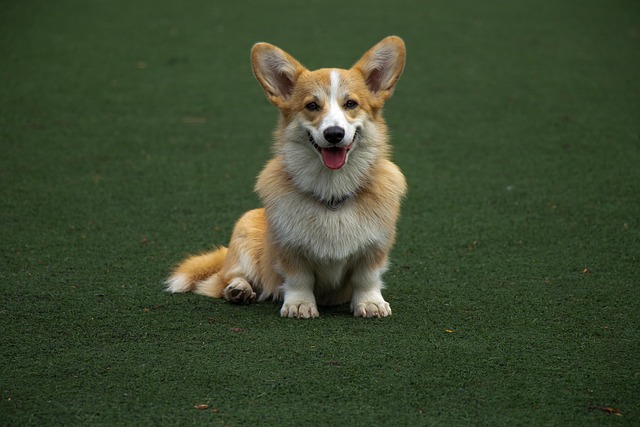
How can I tell if my dog's heatstroke is serious
Let’s be real: It’s a sticky August morning in Los Angeles, and you took your 2-year-old Golden Retriever, Max, for a walk a little later than usual
Corgis, with their stubby legs and perky ears, steal hearts easily—but raising one right takes more than adoration. These energetic pups have unique needs, starting with their diet. Puppies need nutrient-dense food to support bone growth, while adults thrive on portion-controlled meals to avoid obesity—a common issue in the breed. Veterinarians recommend high-quality kibble with balanced protein and fiber. Beyond meals, staying on top of health checks is non-negotiable. In most U.S. states, rabies vaccines are legally required, and annual vet visits catch issues like hip dysplasia early. Skipping these isn’t just risky for your corgi—it could land you with fines.
 Training a corgi feels like a dance—they’re smart, but their herding instincts can make them stubborn. The key? Positive reinforcement, not scolding. When your pup sits on command, a tiny treat or excited praise works wonders; yelling or physical discipline only breeds fear, which goes against animal welfare norms here. Start with basics: “sit,” “stay,” and “come” using short, 5-minute sessions. Socialization matters too—expose them to kids, other dogs, and loud noises before 16 weeks old. A friend in Portland swears by puppy classes at the local park; her corgi now greets strangers without nipping.
Training a corgi feels like a dance—they’re smart, but their herding instincts can make them stubborn. The key? Positive reinforcement, not scolding. When your pup sits on command, a tiny treat or excited praise works wonders; yelling or physical discipline only breeds fear, which goes against animal welfare norms here. Start with basics: “sit,” “stay,” and “come” using short, 5-minute sessions. Socialization matters too—expose them to kids, other dogs, and loud noises before 16 weeks old. A friend in Portland swears by puppy classes at the local park; her corgi now greets strangers without nipping.
Don’t let those short legs fool you—corgis need serious exercise. Even in apartments, aim for two 30-minute walks daily, plus playtime with a fetch toy. Without it, they’ll turn to chewing shoes or digging couches. When out and about, follow community rules: always carry poop bags, and keep them leashed in busy areas. A neighbor in Austin learned the hard way—letting her corgi off-leash in a park led to a run-in with a skittish dog, and a not-so-friendly chat with park rangers.
Corgis shed—a lot. Weekly brushing with a slicker brush keeps loose fur off your couch and strengthens your bond. During shedding seasons (spring and fall), step it up to three times a week. This isn’t just about cleanliness; it’s a chance to check for ticks or skin irritations. My colleague’s corgi, Max, once had a small cut hidden under his thick coat—caught only because of their regular brushing routine.
Corgis thrive on companionship and can get anxious when left alone. To prevent separation anxiety, start with short absences—10 minutes at first, gradually lengthening. Leave a puzzle toy stuffed with peanut butter to keep them occupied. A family in Denver tried this with their rescue corgi, and within a month, she stopped howling when they left for work. Remember: a happy corgi is one that feels secure, not stressed.

Let’s be real: It’s a sticky August morning in Los Angeles, and you took your 2-year-old Golden Retriever, Max, for a walk a little later than usual

You're enjoying a summer afternoon at the park when you notice your dog has stopped panting and appears disoriented - their gums are bright red

Let’s paint the picture: You’re in your Denver apartment, watching your 4-year-old Boston Terrier, Ruby, plop down mid-play session with her favorite toy

Many dog owners notice their pets nails seem shorter after regular walks,but how much does this daily activity actually help?The answer depends on where you walk—concrete sidewalks or asphalt streets gently file nails as a dog's paws hit the ground

Most dog owners notice their pup scooting across the carpet at some point, but few connect it to impacted anal glands. These small sacs near a dog’s rectum secrete a scent for marking territory

Most vets agree that regular dog teeth cleaning is key to avoiding painful dental issues later. For healthy adult dogs, a professional cleaning at the vet’s office every 12 to 18 months usually works well.